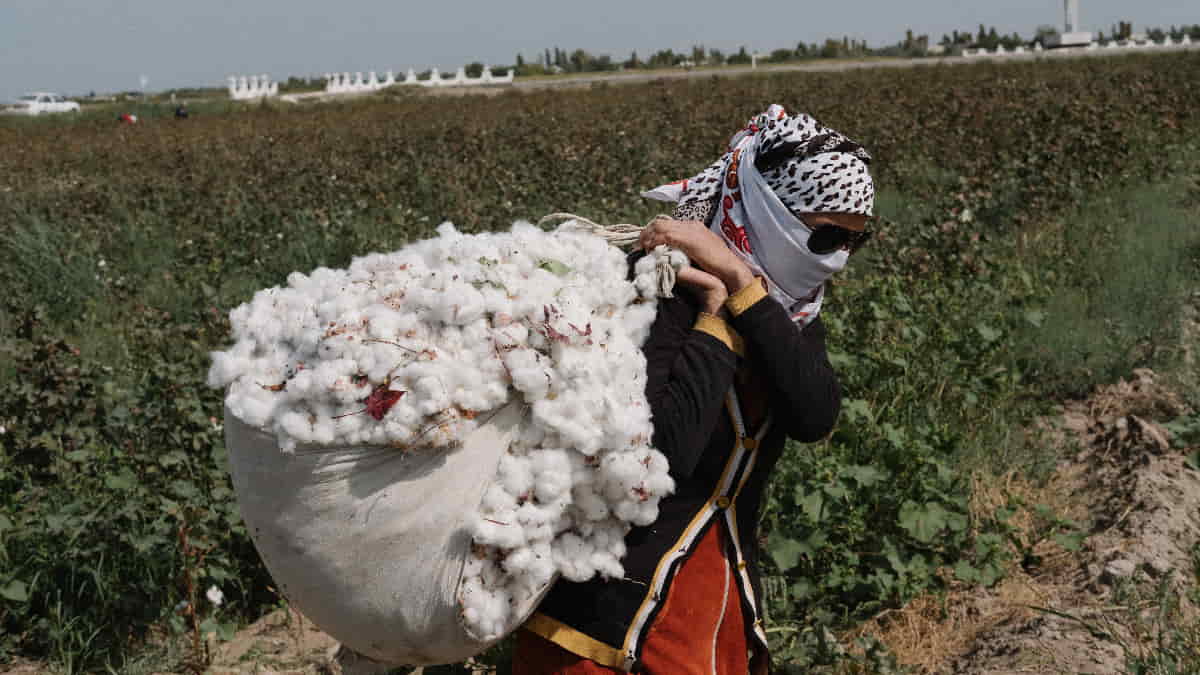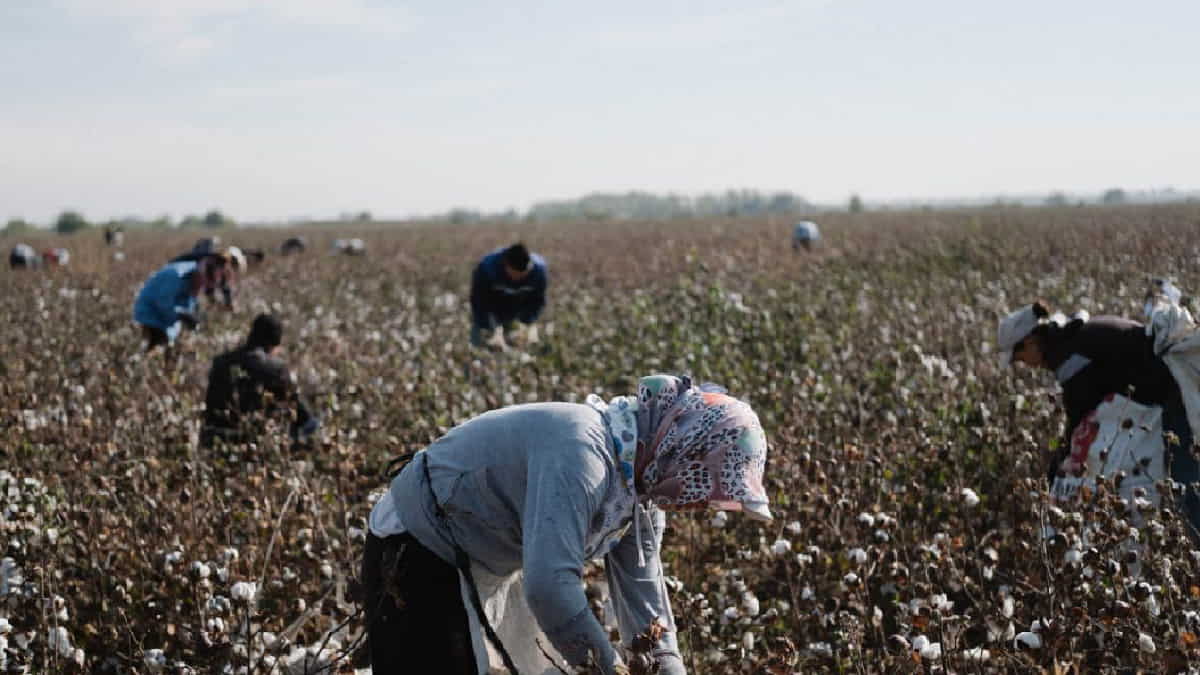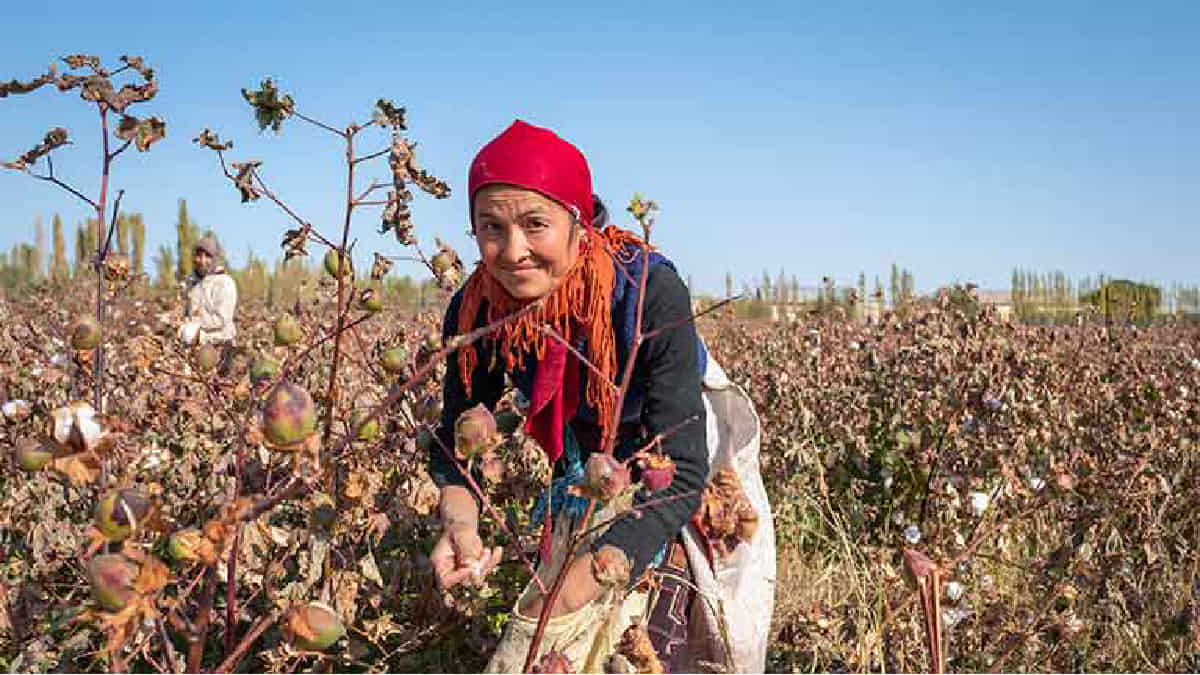Uzbek cotton succeeded in eliminating systemic forced labour and child labour throughout the 2021 production cycle according to International Labour Organization’s (ILO) Third-Party Monitoring Report. Uzbekistan is the sixth-largest cotton producer in the world, with around two million people hired each year for the annual cotton harvest. An estimated two million children have been taken out of child labour and half a million adults out of forced labour since the reform process of Uzbekistan’s cotton sector began seven years ago. The ILO Third-Party Monitoring project, implemented with support from the European Union, the US State Department, the Government of Switzerland, and Germany, has been monitoring the cotton harvest in Uzbekistan since 2015 under an agreement with the World Bank.
On the other hand, the Cotton Campaign announced last month that it had ended its call for a global boycott of Uzbek cotton, following the Uzbek Forum for Human Rights’ report on the absence of central government-imposed forced labour in the 2021 harvest. The Cotton Campaign is a coalition of human and labour rights non-governmental organizations (NGOs), independent trade unions, brand and retail associations, responsible investor organizations, supply chain transparency groups, and academics who work to end forced labour in cotton production.
Uzbek civil society activists signed a petition in 2009 calling for a boycott of Uzbek cotton, whereupon companies began to make individual commitments. Since the launch of the Uzbek Cotton Pledge Against Forced Labour by Cotton Campaign, 331 brands and retailers, including many of the world’s biggest brands such as C&A, Gap Inc. and Tesco have signed the Uzbek Cotton Pledge.

99 percent of those participating in the Uzbek cotton harvest in 2021 worked voluntarily
99 percent of those involved in the 2021 cotton harvest worked voluntarily according to the 2021 ILO Third-Party Monitoring Report of the Cotton Harvest in Uzbekistan based on eleven thousand interviews with cotton pickers. All provinces and districts had very few or no forced labour cases and about one per cent were subject to direct or perceived forms of coercion. The data shows that 0.47 percent of respondents reported direct or perceived threats by Mahalla representatives (local officials at the community level) related to social benefits, and 0.12 per cent of respondents reported direct or perceived threats by employers related to loss of employment or wages.
Working conditions had improved since 2020
A majority of cotton pickers who took part in interviews said that working conditions had improved since 2020. Only five percent said that the conditions were worse than the previous year. This relates to transportation, food, access to water, hygiene and other facilities. According to the report, one in eight people of working age in Uzbekistan participated in the cotton harvest – the world’s largest recruitment effort. Sixty-two percent of pickers were women, and the vast majority were from rural areas.
ILO Director-General Guy Ryder said that after 7 years, this year’s report shows that Uzbek cotton is free from systemic forced labour and child labour and disclosed; “There is now an opportunity for Uzbekistan to realize its goal of moving up the value chain and to create millions of decent full-time jobs in textile and garment manufacturing”.

The labour market in Uzbekistan is being democratised
Uzbekistan has embarked on reforms that include the modernization of the country’s former agricultural economic model and the eradication of forced labour and child labour in the annual cotton harvest that was previously prevalent under the leadership of President Shavkat Mirziyoyev.
Uzbek Senate Chair and National Commission to Combat Forced Labour and Human Trafficking Head Tanzila Narbaeva said that they work tirelessly to change thinking and behaviour through awareness-raising campaigns on labour rights. Narbaeva, relaying that they criminalized forced labour and child labour, added that they enhanced the labour inspection and engaged in dialogue with civil society to identify common ground and solutions.
ILO TPM Project in Uzbekistan Chief Technical Advisor Jonas Astrup said that monitors observed new developments which indicate the democratization of the labour market in Uzbekistan. Astrup remarked that for the first time, the minimum wage was consulted with not only the government but also the trade unions and employers of Uzbekistan, disclosing; “We also observed an emerging trend of collective bargaining at the grass-root level. Cotton pickers would engage in informal wage negotiations with farmers and textile clusters. Many pickers were paid well above the minimum wage as a result”.
On the other hand, in addition to these positive developments, human rights organizations state that there are still some serious risks. It is emphasized that despite the privatization of the cotton sector in the country in 2018, state control over agriculture creates a disadvantage for farmers by strengthening the monopoly.


